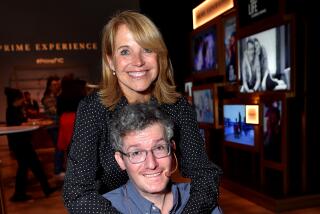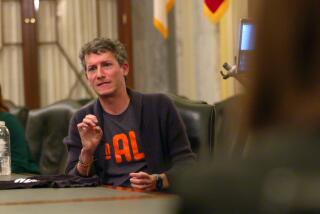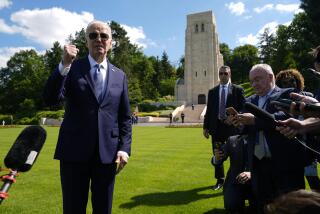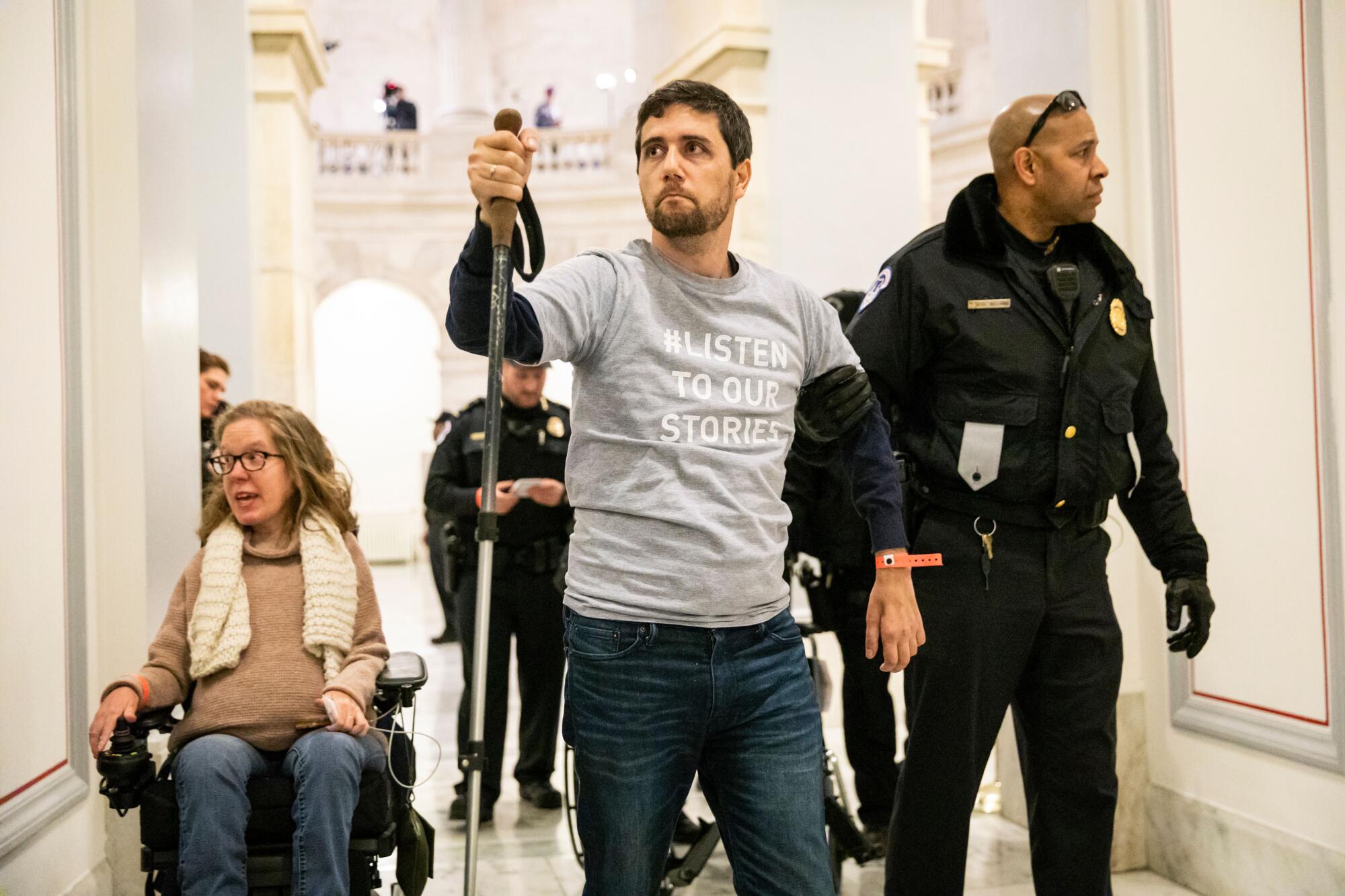
Since the moment he was diagnosed with ALS in October 2016, progressive activist Ady Barkan’s life has been measured out in a string of cruel losses, as the neurodegenerative disease robbed him of one ability after another that he, like most of us, had always taken for granted.
The ability to carry his young son, Carl. To dress himself and put on his own shoes. To walk. To stand. To speak. And finally to breathe on his own.
At this point, the one part of Barkan’s body that he can still control well is his eyes — but that is enough to allow him to share his thoughts with the outside world, albeit painstakingly.
“I do most of my communication using miraculous technology that follows the movement of my eyes … which allows me to use my tablet computer to type out these answers to your questions,” Barkan, 37, writes via email from the home in Santa Barbara he shares with his wife, Rachael King, and their two children. “It’s an exceptionally slow way to communicate but the difference between communicating slowly and not at all is everything.”
The central paradox of Barkan’s ALS, however, is that, even as he has lost the ability to speak, his voice in another sense has only grown louder. Now Barkan’s story of perseverance in the face of tragedy has been chronicled in an unflinching and moving new documentary, “Not Going Quietly,” currently playing in select theaters and available to stream via Laemmle Virtual Cinema. Directed by Nicholas Bruckman, the film, which has received critical acclaim, is set to air on PBS in January.
“I learned early on that my having ALS forces people to listen to me with newfound attentiveness,” Barkan says. “As ALS has made my voice weaker, more people have heard my message. As I’ve lost the ability to walk, more people have followed in my footsteps. Organizing is about using the resources at your disposal to build the power you need to accomplish your goals — and ALS is unfortunately very much at my disposal.”
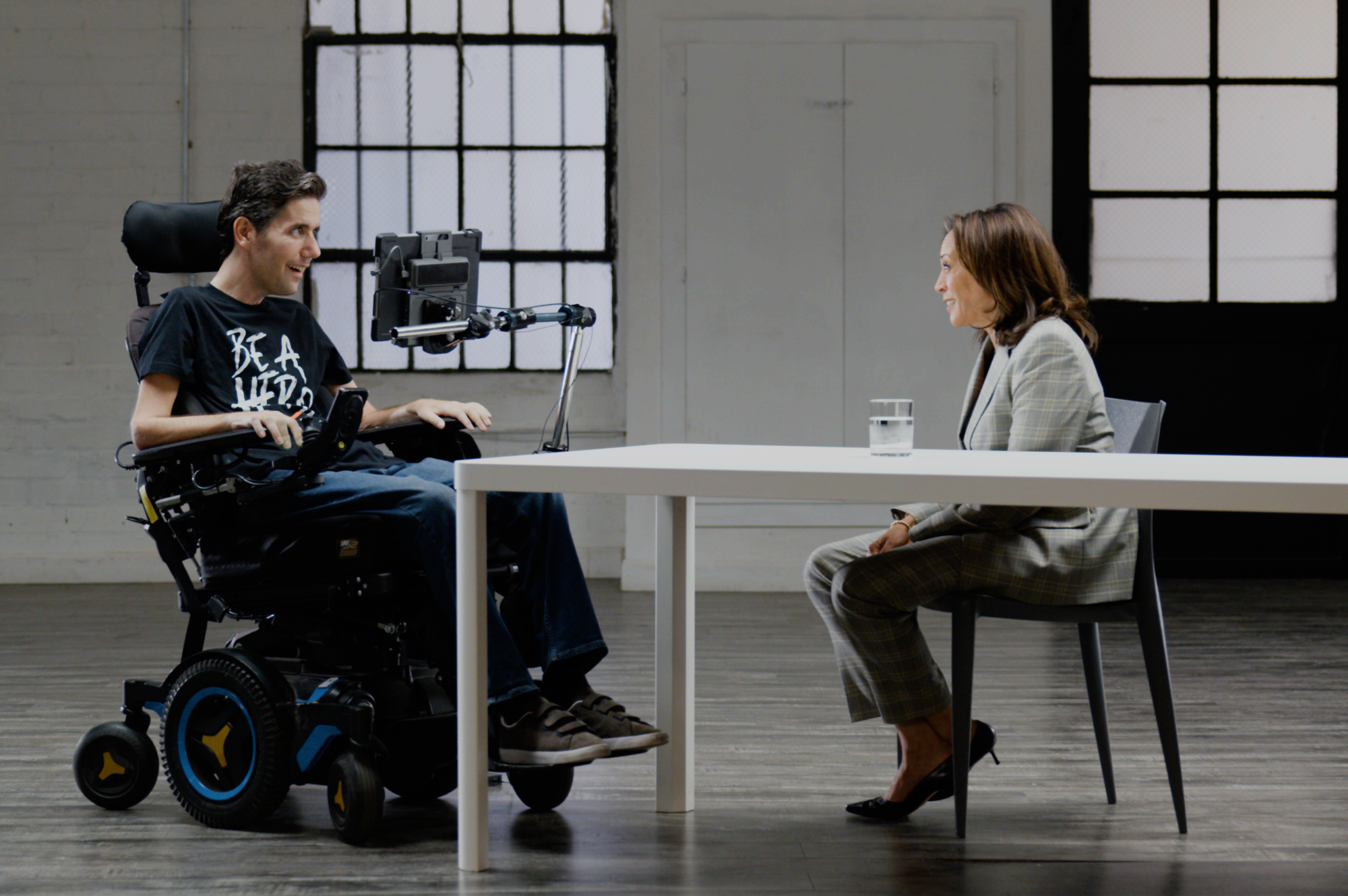
Before being diagnosed with ALS at 32, just four months after the birth of his first child, Barkan had been a hard-charging but relatively obscure lawyer and progressive activist. That all changed overnight in October 2017 when, during a flight from Washington, D.C., to Phoenix, Barkan confronted Sen. Jeff Flake (R-Ariz.) over his support of proposed tax cuts that jeopardized health coverage for disabled Americans. The impassioned exchange went viral on social media before the plane even landed, propelling Barkan to the vanguard of the progressive movement.
Fellow activist Liz Jaff had filmed the confrontation with Flake on her cellphone and uploaded it to Twitter, having met Barkan only minutes earlier while boarding the flight. From that moment, the two saw the opportunity to harness — and unapologetically exploit — Barkan’s terminal disease for political purposes.
“Of course it’s exploitation — what else would it be?” says Jaff, who co-founded the political action committee Be a Hero with Barkan to push for “Medicare for all,” among other progressive causes. “If Ady could be anonymous and not have this horrifically terrible disease, of course that’s what both of us would want. But Ady’s response was, ‘If I’m dying, I want it to mean something.’ ”
Bruckman first met Barkan a few months later when he was hired to make a video to help promote Be a Hero. “I thought it would be a kind of a morose kind of tear-jerking, tiny-violin political ad,” Bruckman says. “But we developed this incredible rapport and I realized, in a very profound way, that what he was doing was turning his disease into this weapon, using his story as a tool to create change.”
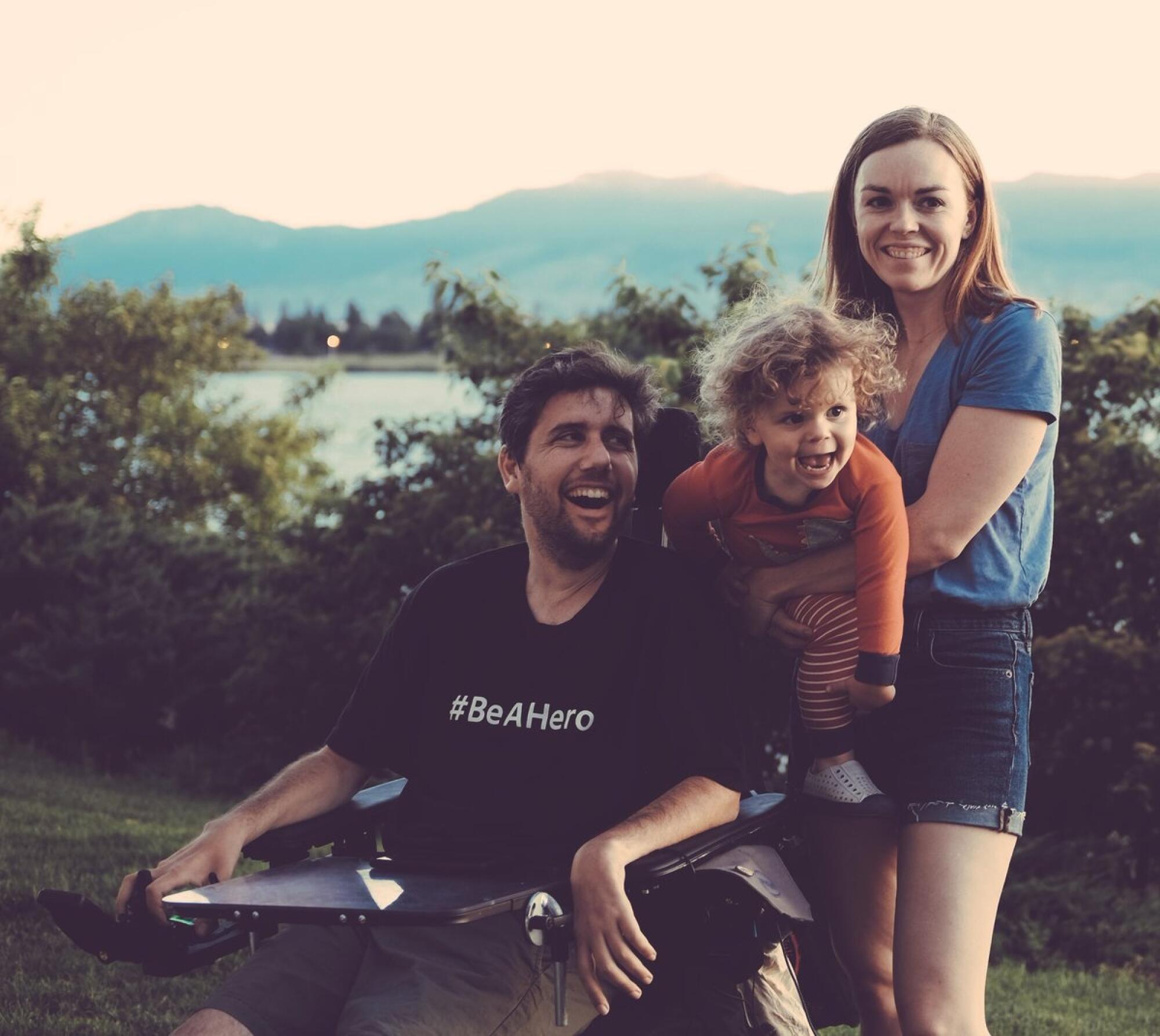
Actor Bradley Whitford, who has been involved for years in progressive politics, was moved by Barkan’s continued fight in the face of his own mortality to come aboard “Not Going Quietly” as an executive producer.
“I think people with ALS get exhausted with the word ‘inspiring,’” says Whitford, who lent his voice to the audiobook of Barkan’s 2019 memoir, “Eyes to the Wind.” “But there are very, very few people who, when confronted with unspeakable suffering, find in that darkness a call to alleviate the suffering of others. You know, they actually occasionally build religions around people like that.”
For a film centered on so much pain and loss, “Not Going Quietly” is surprisingly full of comedy, as Barkan faces the indignities of his physical decline with frequent moments of dark humor. “All [my wife] wanted was for me to have a six-pack,” he says at one point, as his friend and aide Nate helps him take a shower. “Now I can’t even f— sit up straight.”
“Ady uses his sense of humor to sort of test people out,” says King, a professor of English literature at UC Santa Barbara. “You don’t necessarily expect someone who’s talking through a computer to be making vulgar jokes, so I think it’s a way for him to sort of throw that out there, like, ‘This is who I am.’ ALS is a terrible disease but in a way it’s also just a kind of absurd disease. It’s absurdly terrible. So sometimes you can just laugh about how absurd it is and that helps a little bit.”
For every moment of humor in the documentary, though, there are several that land like punches in the gut. “There’s a part in the film where I look directly into the camera and talk about my son, Carl, and how I want him to be proud of me,” says Barkan, who also has a daughter, Willow, who was born in 2019. “I was holding back tears the first time I watched the film at home, imagining how much of Carl’s future I would miss, and how my absence would affect him, all the while grieving all of what ALS has already stolen from us.”
In the film’s most wrenching moments, Barkan despairs over the loss of his ability to be a normal dad. But King says there is a kind of blessing in the fact that their children have never known anything different.
“Ady would love to be teaching Carl how to dribble in the backyard, but at least he gets to take him to basketball practice and watch him,” says King. “Carl is starting to learn how to read now. So he’ll stand next to Ady’s wheelchair and watch as Ady’s typing with his eyes and then respond before it even reads the sentence out. They’re starting to have their own little private conversations that way, which is really sweet.”
Though he requires round-the-clock care, Barkan’s health has been stable since he received a tracheostomy in late 2019. Now, for as long as he has left to live, Barkan — who spoke last year at the Democratic National Convention — continues to work, often late at night after the kids are asleep. “He’s still a crazy taskmaster,” says Jaff. “There’s this fierce urgency of the now that just is permeating through him because of his illness.”
I have found that calling someone inspirational is often followed by, ‘I could never do what you do.’ That’s a lazy out.
— Ady Barkan
These days, the majority of Barkan’s energy is directed toward a campaign to provide every elderly and disabled person with the option of home care.
“I believe it should be a human right in the richest nation in history to have access to the care you need to live at home instead of being forced into an institution, which has happened to millions of disabled and elderly people in our country,” he says. “Women make up the majority of our caregiving workforce, and among them, the vast majority are Black, Latinx and Asian women. Funding home- and community-based services then is not only a matter of disability justice but also of racial and economic justice.”
Barkan knows that his story has the power to tug at people’s heartstrings; indeed, as an activist, he counts on that reaction. But he bristles at the idea of being held up as an inspirational figure.
“First, my mere existence as a disabled person does not warrant your praise,” he says. “And second, there is danger in placing people on a pedestal, holding others to a higher regard than you do to yourself. I have found that calling someone inspirational is often followed by, ‘I could never do what you do.’ That’s a lazy out.
“When you distance yourself from the work of changing the insufferable conditions that dictate our lives, what you’re doing is leaving the work to someone else,” he continues. “You can do this work too, and if you are able, I urge you to. Our struggles are interconnected, and therefore, our freedom is too. My fight is your fight, and your fight sure as hell is mine.”
More to Read
Only good movies
Get the Indie Focus newsletter, Mark Olsen's weekly guide to the world of cinema.
You may occasionally receive promotional content from the Los Angeles Times.
